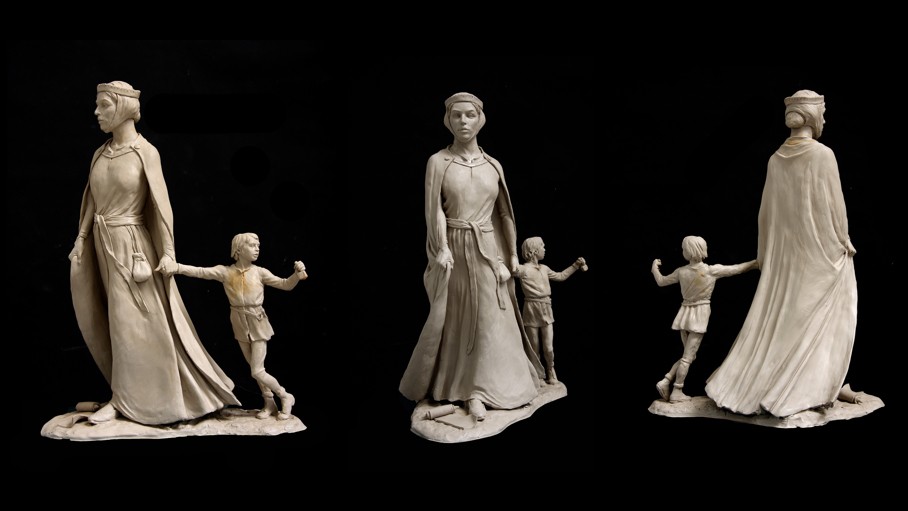Famed medieval Jewish woman recognized with new statue

She was one of the most wealthy financiers of her day, known to the kings of England and described as the most important Jewish woman of medieval England. She was also brutally murdered in what may have been a 13th-century hate crime.
Now, a statue of Licoricia is to be unveiled in the historic city of Winchester, both to celebrate her achievements and to alert people to Britain’s dark and often forgotten antisemitic past.
Licoricia of Winchester was a major financial backer of three English kings—John, Henry III, and Edward I—and was well known in Winchester, the city in Southern England where she lived and raised her family. Despite her status as a respected, prosperous businesswoman, it is suspected that her fatal stabbing in her home in 1277 may have been inspired by antisemitism.
The life-size bronze of Licoricia, which will be unveiled by the Prince of Wales, was designed by sculptor Ian Rank-Broadley, who created the statue of Princess Diana unveiled in London last July. Licoricia’s statue will be blessed by Britain’s chief rabbi, Ephraim Mirvis.
Organizers of the fundraising effort for the statue, who are backed by the Anglican Winchester Cathedral, say that they want to highlight the existence of Jewish communities in medieval England and their achievements, to celebrate Licoricia as a role model, and to recognize the impact and influence of antisemitism in England.
Jews first came to England with William the Conqueror in 1066, and though they were considered the monarch’s property and had some restrictions on their activities, they found work in teaching, medicine, and trade despite some restrictions—until 1290, when there was a mass expulsion.
No drawings of Licoricia exist, so Rank-Broadley has based her depiction on his Jewish wife. It will be installed in Jewry Street, where Jews once lived in Winchester, opposite the site of Licoricia’s home and the synagogue of the time. In her right hand is a tallage, or tax demand, and her left hand is holding her son Asher, who is carrying a dreidel. —Religion News Service





